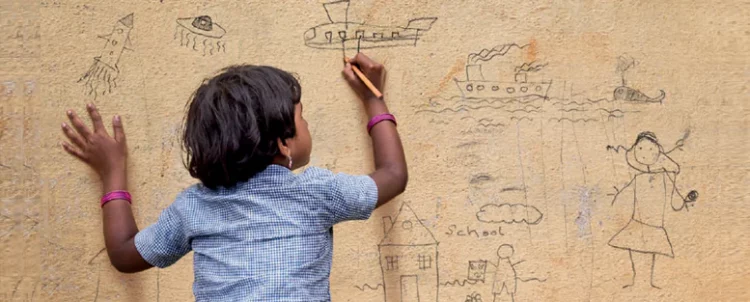“No success or achievement in material terms is worthwhile unless it serves the needs or interests of the country and its people and is achieved by fair and honest means.”– J.R.D. Tata
The enduring journey of the Foundation began in 1996 when it was instituted to fulfill the social responsibilities of Infosys Limited with Sudha Murty, N.S. Raghavan, and G.R. Nayak at its helm. A journey that started 25 years ago with the setting up of libraries in rural schools to promote education has evolved over the years, committed to improving the quality of life in India, touching and benefitting lakhs of people every year.
After an outstanding career in public service, Sudha Murty retired as the Chairperson of Infosys Foundation on December 31, 2021, marking a remarkable journey of selfless dedication to social causes.
CSR Spending of Rs. 296 Cr
The foundation started working in 1997-98 with a fund of Rs. 30 Lakh. The foundation has spent Rs. 296 Cr during the year 2021-22 towards 121 social development projects.
The Infosys Foundation works across the areas of healthcare, education, rural development, destitute care, and arts and culture. The Foundation partners with several organizations to create an impact. In the past year, It undertook 121 programs and estimated that these programs impacted approximately 73 lakh individuals.
Also Read: CSR: Infosys spends Rs. 345 Cr on Social Development Projects in FY22
These individuals are spread across several Indian states. Since its inception, Infosys Foundation has weighed every project proposal it has received to assess how many people stand to benefit and whether it has a long-lasting impact on individuals and communities.
Initially, the Foundation had focused on education and healthcare. In education, it had prioritized elementary and higher education for the underprivileged, women’s literacy and training of teachers and gradually started supporting higher education and research.
In healthcare, its interventions ranged from addressing issues in women’s and children’s health to mental health, improving access to quality healthcare in rural areas, enhancing healthcare facilities in hospitals, and now, providing critical support during the COVID-19 pandemic.
Further, the Foundation undertook several rural development projects across India and extended support to destitute care, providing shelter, food and comfort to those who needed it in the past year, especially in light of the pandemic.
Some examples of foundation work include providing infrastructure and equipment to various hospitals such as Tata Memorial Center in Mumbai, AIIMS in Delhi, Kidwai Institute of Oncology in Bengaluru, and donating essential medical equipment to frontline workers and supporting Inali Foundation with the development of artificial hands in Hyderabad.
In the domain of education, The foundation worked to aid the interdisciplinary research of the DAKSH Centre of Excellence at IIT Delhi, sponsored a digital library for the National Law School of India University in Bengaluru, and supported Prakash Padukone Badminton Academy to nurture excellence across India. It also made infrastructural grants across various states in India.
For rural development, It has focused on organizations such as Shivganga Samagra Gramvikas Parishad to help with the development efforts of about 1,300 villages in Madhya Pradesh through training, afforestation, and water conservation projects, assistance for farm pond projects in Hubballi, Karnataka, upgrading to smart classrooms and improving infrastructure at Ramakrishna Mission in Arunachal Pradesh, and providing mid-day meals to children in rural schools in Tripura through Akshaya Patra.
Also Read: Infosys Foundation constructs a Sports Complex in Bengaluru
The company continued its efforts in destitute care through India-wide rehabilitation and welfare assistance for army personnel and martyrs’ next of kin, supporting livelihood requirements of the underprivileged and needy, managing disasters and ensuring flood relief efforts in the states of Andhra Pradesh, Karnataka, Kerala, Tamil Nadu, and Uttarakhand.
Addressing SDGs
The Sustainable Development Goals (SDGs), otherwise known as the Global Goals, are a universal call to action to end poverty, protect the planet and ensure that all people enjoy peace and prosperity.
These 17 goals build on the successes of the Millennium Development Goals while including new areas such as climate change, economic inequality, innovation, sustainable consumption, peace and justice, among other priorities.
The goals are interconnected—often the key to success on one will involve tackling issues more commonly associated with another.
The SDGs are unique in that they cover issues that affect us all. They reaffirm international commitment to end poverty, permanently, everywhere. They are ambitious in making sure no one is left behind. More importantly, they involve us all to build a more sustainable, safer and more prosperous planet for all of humanity.
Infosys’ commitment to sustainable development is well-articulated in its vision to earn the respect of all its stakeholders including investors, clients, employees, suppliers, government and the larger community.
This vision has been the cornerstone of the Company’s sustainable development journey since its inception. Infosys is committed to the communities in which it operates.
The Foundation prides itself on working with the poorest of the poor, selecting projects with infinite care and working in areas that are normally overlooked by the larger society. The Foundation partners with various non-profit and non-governmental organizations, among others, to make a difference in local communities.
Infosys Foundation receives requests for funding of projects through the calendar year. Its panel of experts evaluates proposals in the areas of culture, destitute care, education, healthcare, and rural development.
It prioritizes projects by assessing their impact and matching funding requirements with the availability of funds in its corpus.
The Foundation collaborates with stakeholders to monitor the status of each project. It adopts the build-operate-transfer (BOT) model of project financing to develop self-sustaining communities It also partnered with animal welfare organizations such as Sarvoham Animal Foundation and Samarpan Foundation in Karnataka.
Across major areas of focus, there is an emphasis on women’s empowerment. Some examples of work in this domain include establishing a livelihood and training center on the campus of Khushi Trust in Raichur, construction of a girls’ hostel in IIIT Tiruchirappalli, and building a maternity and childcare hospital in Kanakapura, Karnataka.
(India CSR)



























